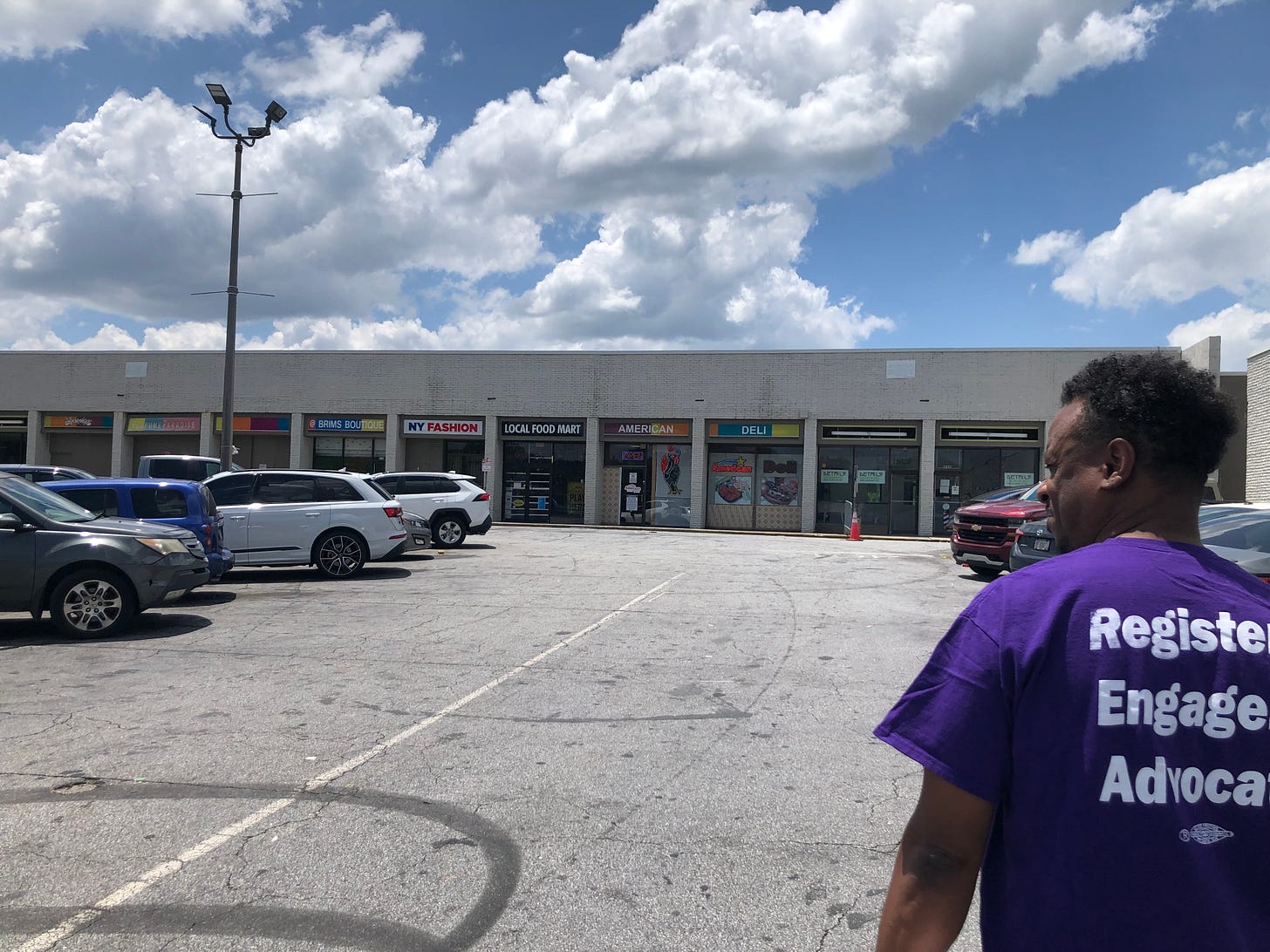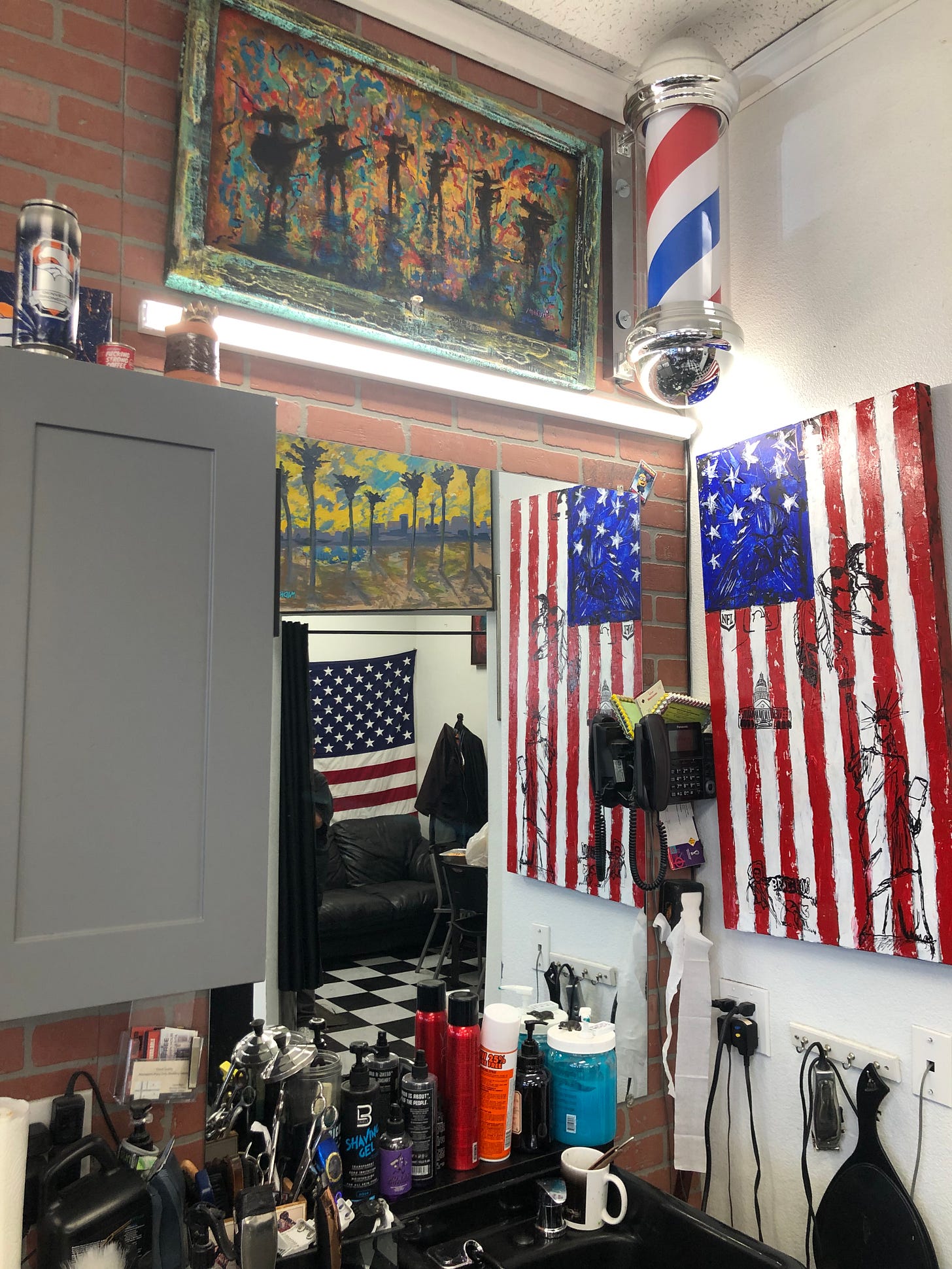In June 2022, I was teaching a three week class on Journalistic Theater at Mendocino College, living in a cabin with no electricity. I had a little battery-operated transistor radio though. So as I washed dishes, I could listen to the January 6th special congressional hearings. The stories of conspiracy theorists bullying election workers shook me. It was a violent manifestation of a country so divided it couldn’t agree on basic facts.
I wondered: how do we heal a society so fractured? I thought of South Africa, and it’s Truth and Reconciliation Commission, the iconic triumphal story of my burgeoning adolescent political consciousness. A place I had visited, post-Apartheid, in 2002 and 2006. Perhaps I could go back and make a show about reconciliation as a model for our country?
I spent a couple months working up contacts in South Africa. I bought plane tickets and arranged accommodations. But in talking to people who lived in South Africa, it emerged that the promise and hope of reconciliation had faded in the face of corruption, economic tailspin, and infrastructural collapse. More than half the population of South Africa didn’t even have memories of Apartheid. One professor mentioned Colombia as an alternative, a place that was emerging from a fifty-year civil-conflict and embarking on an ambitious process of national reconciliation. A place I knew slightly from a visit in 2008.
So I reversed course, worked up contacts in Colombia, and flew to Bogota in November 2022. I talked to dozens of people in Colombia, former FARC and para-military combatants and leaders, activists, artists, journalists, survivors, victims, cab drivers, fruit sellers, you name it. It was fascinating. I was fully immersed. (You can read my Letter From Medellin here.)
Right before I went on that trip though, I took a two-day trip to Las Vegas to get the pulse of the country, and to get back into research mode after a long time off during the pandemic. (Las Vegas is a mix of people from all over the country, and it’s cheap and easy to get to).
And in Las Vegas when I told people I was researching a new play on reconciliation, everyone said some version of “good luck with that, this country is in the middle of a fight. There’s no reconciliation.” I realized that in trying to study post-conflict societies as a model for our own, I had jumped forward in time. A full-scale violent conflict had not come to the U.S.
I had gotten too theoretical, and gotten away from the concrete details of people’s lived experience. So I thought: I should really go see what it feels like to be in the places where the country’s future is most contested.
So in Spring 2023 I went to Sarasota, Florida, where the first Moms For Liberty chapter started, and three Proud Boys-backed school board candidates had turned a placid beach town into a national battleground. (Which I wrote about here). I went to a Prepper Conference to see what the country looked liked through the eyes of a socio-political fringe that had a mainstream moment in the despair of the pandemic. (Dispatch about that here).
At a bar and grill in St. Augustine, I met a former Blackwater contractor who’d worked three years in Iraq and emerged with fresh insight on the cost of Youtube masculinity. I connected with a woman in Charleston who found out her family was some of the biggest slave traders in South Carolina, and began airing her family’s secrets publicly. And then started researching all the other prominent families who were involved in the dirty business. But did so with a gentile subversive glee perfectly suited to blue-Blood South Carolina.
One contact led to another and I found myself listening to a survivor of a white supremacist mass shooting recount facing down the murderer in the moment. Sure, she said, so much of what’s happening in the country is painful. But what are you gonna do about it?
I realized I was researching a play that asks: how do people and societies change?
There are no easy answers, no theoretical big swings. Instead, it comes through in a series of closely observed portraits. I got interested in the people who are pushing the country forward in the politically purple parts of our country. Who are, as one person put it, “in the trenches of change.”
So I spent time embedded with voter-registration organizers in Atlanta. They were former airport baggage handlers, bartenders, and strippers, not prototypical fleece-clad activists. But they saw themselves in the lineage of Civil Rights era activists who organized on the same streets in Atlanta generations before. I profiled a Latino barbershop in Las Vegas where guys preen and poke fun at each other and talk politics all at the same time. I went to Missouri and listened to the ultimate story of redemption—a former violent extremist gang leader from Chicago who’d spent the second half of his life de-radicalizing other violent extremists.
Looking at it now, this new piece of journalistic theater carries the traces of reconciliation. But it’s not a kumbaya, all-together-now reconciliation. It’s the painful and fraught re-imagining and re-creating of a way forward. It’s unlikely activists who negotiate the complexities of changing hearts and minds in politically mixed areas, where there are far fewer common assumptions than in the Bay Area or New York. And in the surprises and complexities of these people, I find joy, and comic truth, and inspiration.
It's my huge pleasure and privilege to witness and chronicle the unspooling of America’s story; a nation that loves to talk, and bears its story publicy. It’s my aim to honor the essence and truths of everyone I met in the best way I can, so audiences get to experience it for themselves too.
I gave it the subtitle Stories of American Democracy, because at a time when our democratic institutions and foundations are being questioned and undermined, I found myself enjoying the spaces and places where democracy shows up and shines. As one character says before going into a school board meeting, “Hell yeah I’m going into the meeting. Everyone gets two minutes on the mic. Democracy’s fun. Enjoy it while it lasts.”





